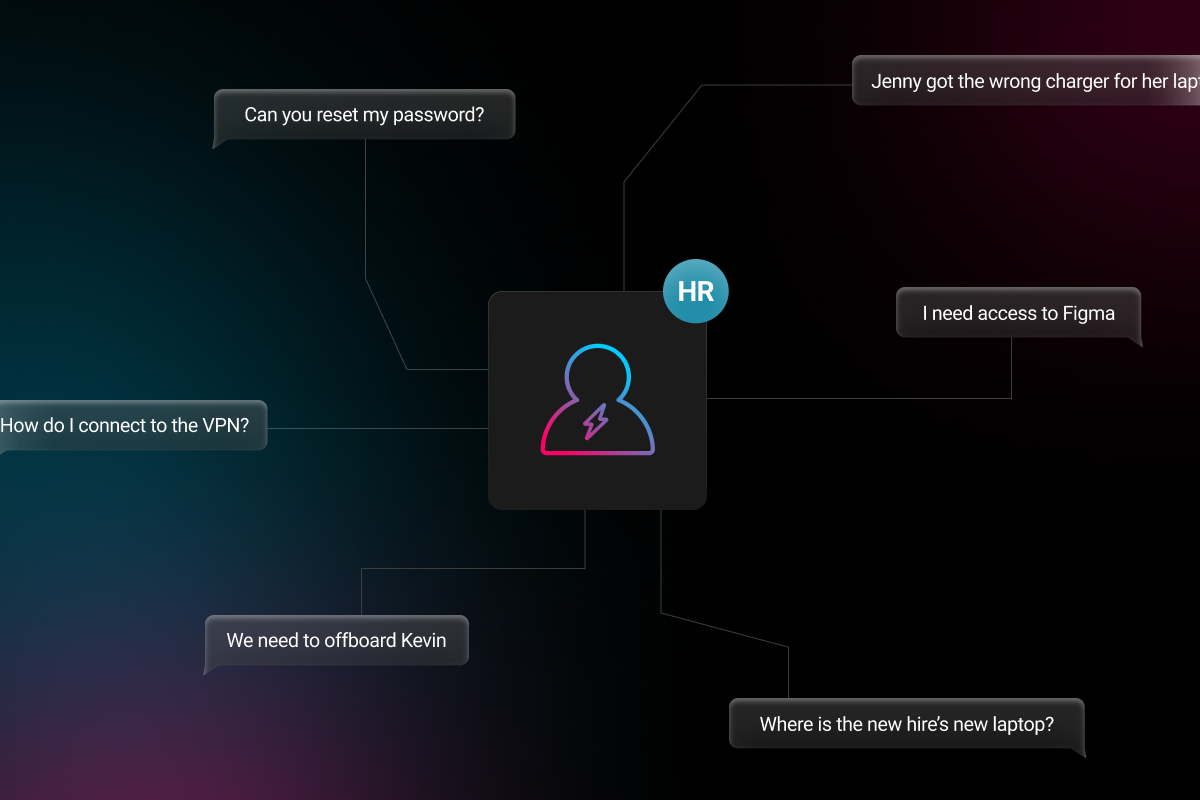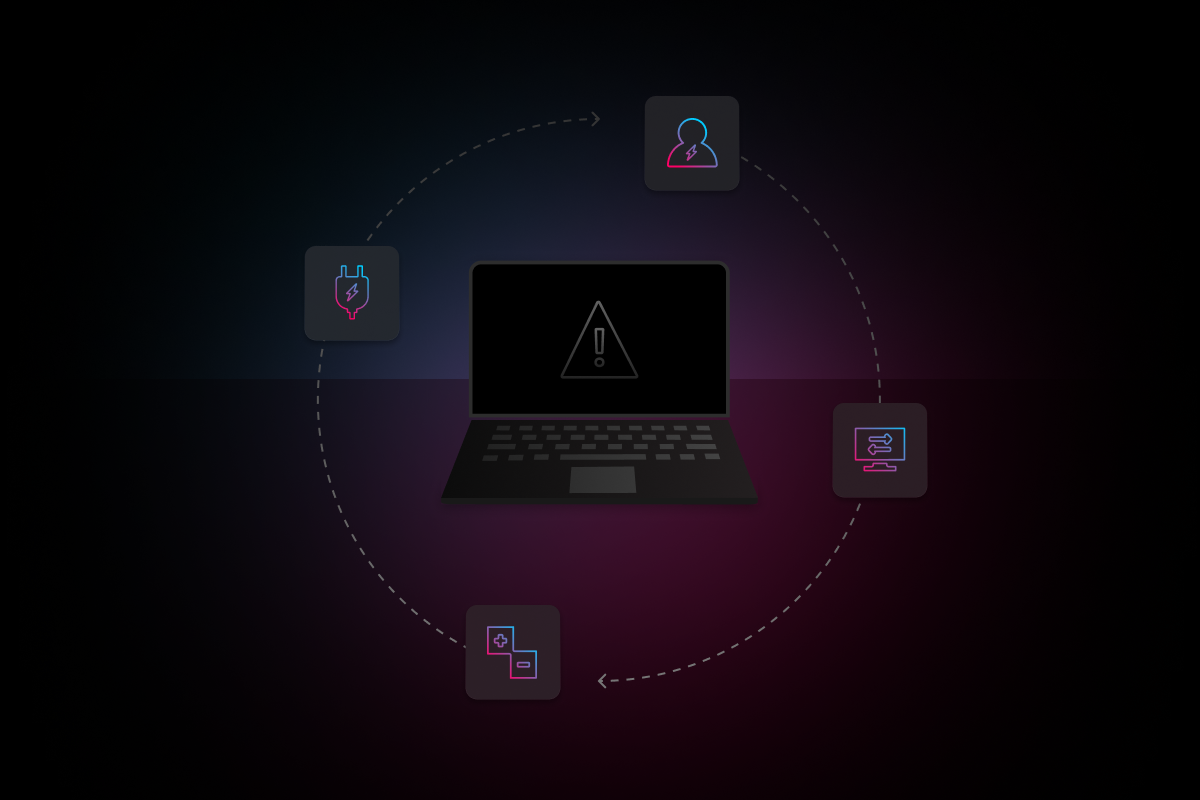
Cybersecurity is one of the most pressing concerns for businesses of any size. According to a report by ID Agent, 47% of businesses reported experiencing five or more attacks in 2020. A proactive defense is one of the only ways to keep your business data and operations safe from network-based attacks.
Firewalls, which monitor network traffic to identify and block potential threats, should be the foundation of your business’s cybersecurity infrastructure. Learn more about what a firewall is, different types of firewalls, and the business-critical advantages of getting the right firewall up and running to protect your organization.
What Is The Purpose of a Firewall?
Firewalls create a barrier between the devices on your network (such as desktop computers, mobile devices, printers, and more) and the networks outside of your organization. All of the data that goes from your network to the outside world or from the Internet and external systems into your network is monitored by a firewall to look for malicious data or recognizable threats. It also acts as an intermediary so your computer systems never directly connect to someone else’s.
Without a firewall, your device or web server is low-hanging fruit that can be vulnerable to thousands of different attacks, both automated and targeted, any time it connects to an outside device. These attacks can frequently come in the form of unwanted downloads, which infect your device with monitoring or keylogging programs, ransomware, and malware. Firewalls can also protect your network from distributed denial-of-service (DDoS) attacks that could otherwise flood your bandwidth and take down your website or online resources.
Traditionally, firewalls were very limited and monitored data from a small (and usually outdated) set of rules. But today’s firewalls are more robust, receiving constant updates, being capable of keeping out sophisticated threats, and filtering out malicious data packets so they can be investigated or kept isolated from your devices. Today’s firewalls can be hardware, software, or a combination of both so organizations can set up a custom array of defenses that balances their needs to keep their networks secure without slowing down business operations. Some organizations even create a human firewall in order to have their organization synced up on best practices for protecting their data.
Benefits of Using a Firewall
Firewalls are essential for protecting your personal and business networks. Without a firewall, your devices and data are vulnerable to attacks, malware, third-party monitoring, and more. But with the right firewall, you can expect these benefits:
-
Data packets with threats and malicious elements will be blocked from reaching you or your device. This includes malware like Trojans.
-
It will prevent hackers and automated bots from reaching your computer. Hackers and bots can attempt to use your computer to mine cryptocurrency, spread viruses, and perform other actions that range from actively malicious to using up your processing power.
-
Firewalls protect your privacy so third-party agents and systems can’t access your personal data, passwords, and even your IP address.
Firewalls are a critical component (but not the only component) of protecting your devices and network from unwanted activity and malicious attacks.
Different Types of Firewalls
There are multiple different types of firewalls, each of which is intended to protect different systems through different processes. After all, a personal computer doesn’t need the same firewall capabilities of a large corporation, and even different organizations of the same size will need to block and allow different types of data packets across the firewall.
Five of the most common types of firewalls are:
1. Personal Firewalls
These firewalls are meant for individual use. They protect a single computer. For example, your home computer may have come pre-installed with a firewall as part of your antivirus system. These firewalls are easy to operate (and are also entirely automated), and they protect general computer users from attacks through online applications, monitor incoming and outgoing data, and don’t allow your computer to connect to unsafe or unrecognized programs.
2. Packet Filtering Firewalls
These firewalls have a set of rules that they use to analyze data packets coming in to and out from your computer. When you send an email, for example, you’re sending data packets out to a server, and when you allow a download, you’re receiving data packets.
Packet filtering firewalls are very simple, and all they can do is ensure the data packets don’t break any hard-set rules, such as coming from a specific IP address. Because they’re so simple, they won’t slow down your processing speed; on the other hand, their simplicity means they’re providing relatively little protection.
3. Stateful Firewalls
Compared to their relatively static counterparts — packet filtering firewalls — stateful firewalls are much more dynamic. They can handle more complex rules for filtering out bad data packets, such as identifying patterns. They can also monitor the packets at various points throughout their journey in or out of your network. Because they’re more robust, they’re more effective but need more processing power.
4. Next-Generation Firewalls
This type of firewall is the modern incarnation of firewalls and are typically reserved for enterprises. They provide all of the functionalities of different types of firewalls so they can continuously monitor data and activity while also learning about evolving threats.
5. Web Application Firewalls
Web application firewalls are the most popular type of firewall for most business operations. They can continuously monitor traffic and data from apps, multiple different types of software, and more that older styles of firewalls couldn’t keep up with. With these tools, your IT department can block entire websites, prevent downloads of third-party software, and block attempts at infiltrating your devices with malware. These firewalls can be hardware, installed on servers, or protect your network and websites from the cloud.
Hardware vs. Software Firewall
There are two main types of firewalls: hardware-based walls, such as routers, and software, such as downloadable anti-virus programs. Both have distinct advantages and disadvantages, and larger businesses often actively operate both types.
While hardware firewalls require hands-on maintenance (making them difficult for individuals and small businesses), they provide a layer of defense that online assailants can’t break. They can also protect an entire network of devices from a single point (whereas software has to be installed across each device). Software firewalls are advantageous because they can be easily updated and maintained, especially across smaller systems of devices.
Do SMBs Need a Firewall?
Truthfully, most business owners can identify the security benefit that a firewall can provide. However, the problem is that small and medium-sized businesses often mistake the appropriate protection that is required for their organization.
Common misconceptions about firewalls for SMBs include:
-
Thinking consumer-grade hardware or software is sufficient for business security
-
Low-risk businesses don’t need to worry about firewall protection as much as high-risk businesses
-
With antivirus software, there is no need for firewall protection
-
I already have a firewall in place, so I am all set and don’t need to worry about it anymore
First, there’s a reason why any type of hardware and software come in consumer and business categories. Businesses vary in infrastructure and they often have more devices to keep track of compared to the everyday consumer. Business-grade equipment is always designed for business purposes; not only does it provide more options and control over managing devices, but it also comes with better security and protection.
Second, every business needs to worry about their cybersecurity, regardless of their size. Small businesses are often main targets for cyber criminals, and more than half of them go out of business within six months of being attacked.
Third, firewalls often work in conjunction with antivirus. Essentially, firewalls control traffic going in and out of your device or network, and antivirus scans for and cleans up threats that make it into your computer. Both of these components focus on different kinds of threats, which is why it’s important to have both of them!
Lastly, firewalls are not a set-it-and-forget-it situation. They need to be regularly maintained and, when needed, reconfigured, which many businesses fail to do.
Is Your Firewall Set Up Properly?
There’s a lot more to firewalls than simply setting them up; many small and medium-sized businesses struggle to maintain and monitor their firewall security — often because they don’t have the time, money, or resources to do so. That’s where Electric comes in.
When you partner up with Electric, you have access to a top notch IT team at your fingertips. So not only can we help you find the best firewall solution for your organization, but we can also ensure that it stays up-to-date and continues to protect your business without you having to think about it. And beyond firewalls, we can help with any component of your organization’s cybersecurity — from password management to antivirus to identity management. Schedule a demo today to learn more.



